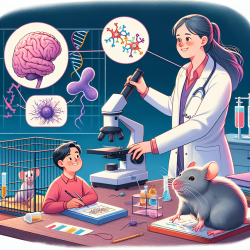Introduction
As professionals dedicated to improving children's lives, staying informed about the latest research is crucial. A recent study titled "Acute kidney injury is associated with impaired cognition and chronic kidney disease in a prospective cohort of children with severe malaria" offers valuable insights that can enhance our understanding and practice. This research underscores the significant impact of acute kidney injury (AKI) on children's cognitive and renal health, particularly in those affected by severe malaria.
The Study: Key Findings
The study, conducted in Uganda, involved children aged 1.5 to 12 years diagnosed with cerebral malaria (CM) and severe malarial anemia (SMA). It highlighted that 35.1% of these children experienced AKI, with a higher prevalence in those with CM (43.5%) compared to SMA (25.1%). The findings revealed that AKI is a critical risk factor for both short- and long-term neurocognitive impairment and chronic kidney disease (CKD).
Implications for Practice
For practitioners, these findings emphasize the importance of early identification and management of AKI in children with severe malaria. Here are actionable steps to consider:
- Early Screening: Implement routine screening for AKI in children admitted with severe malaria. Early detection can help mitigate long-term consequences.
- Integrated Care: Collaborate with nephrologists and cognitive specialists to provide comprehensive care that addresses both renal and cognitive health.
- Parental Education: Educate parents about the potential long-term effects of AKI and the importance of follow-up care to monitor cognitive and renal function.
Encouraging Further Research
While this study provides significant insights, it also highlights the need for further research. Practitioners can contribute by:
- Participating in Studies: Engage in or support research initiatives that explore the relationship between AKI and cognitive outcomes in different pediatric populations.
- Data Collection: Collect and share data on AKI and cognitive outcomes in your practice to contribute to larger datasets that can inform future research.
- Advocacy: Advocate for funding and resources dedicated to research on AKI, CKD, and cognitive impairment in children.
Conclusion
Incorporating the findings from this study into practice can significantly enhance outcomes for children with severe malaria. By prioritizing early detection and comprehensive care, practitioners can help mitigate the long-term impacts of AKI on cognitive and renal health.
To read the original research paper, please follow this link: Acute kidney injury is associated with impaired cognition and chronic kidney disease in a prospective cohort of children with severe malaria.










